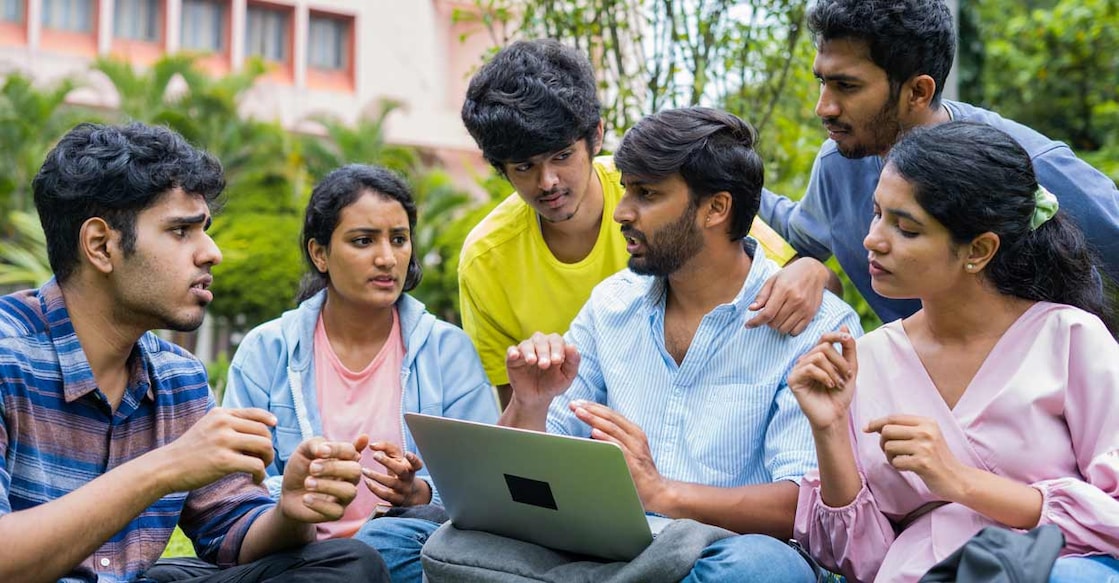As classrooms become multicultural, social-emotional learning is imperative

Mail This Article
New Delhi: Education goes far beyond helping students in acquiring cognitive and intellectual abilities. The usual verbal and numerical skills, physical and motor competencies along with general and spatial reasoning that students pick up in a school-learning environment are not quite enough.
In an increasingly multi-lingual and multicultural classroom where learners come from diverse socio-economic backgrounds, conventional academic learning must be complemented with social-emotional learning for students. Otherwise, their education remains incomplete and they remain under-prepared, if not unprepared, to take on the challenges of the real world in the future.
After all, students when they grow to be adults eventually have to function in a social context. This becomes particularly relevant in light of today's constantly and fast-changing learning, career, and economic landscape galvanised by the advent of new-age information as well as educational technologies. The so-called VUCA[1] world awaits them!
What is Social-Emotional Learning?
Underpinned by the idea of emotional intelligence, advancement on the rather outmoded intelligence quotient, social-emotional learning envisages gaining a wide array of social skills, beliefs, values, attitudes, and behaviour that a student can successfully apply in the real world where they also necessarily have to engage with other individuals. Typically, social-emotional learning trains a student in five core competencies: self-awareness, self-management, responsible decision-making, social awareness, and relationship skills.
Why social-emotional learning must form a part of the school curriculum?
Makes a complete, self-sufficient, and socially-sensitive individual: Social-emotional learning transforms an intellectually and academically competent student into a socially responsible as well as self-sufficient individual. The social and interpersonal skills not only help him navigate everyday personal and professional challenges better but also inculcate in his empathy and compassion for others.
Importantly, the imparting of communication skills as part of the exercise, both verbal and non-verbal, help the student express himself clearly and thereby connect with others better. Eventually, the student develops autonomy and a sense of self-dependence in everyday affairs and is all set to grow into a complete, self-assured, and socially-responsible individual.
Helps students understand the diverse and complex socio-cultural milieu: For a student to succeed in any pursuits of his liking, he must fully grasp and appreciate that people around him - whether at school, the neighbourhood where he stays, or the workplace where he might work later - come from diverse socio-economic, linguistic and cultural backgrounds. He must also understand that the frontiers of learning actually extend to the family and the wider community. This is very significant given the collective social and community settings that a student has to operate in the real world. As a result, the spirit of teamwork, an essential ingredient in any successful enterprise, becomes one of the critical learning outcomes of an exercise in social-emotional learning.
Equips students with age-appropriate strategies for conflict resolution: One of the integral components of a social-emotional learning curriculum is that it trains and prepares students for all kinds of adverse situations. Through real-life stories and examples, they are exposed to the idea that life can throw up the most unexpected challenges at the most critical junctures.
And as such, not only are they taught the value of keeping their spirits up and maintaining calm and composure in a challenging situation, but they are also equipped with practical strategies to tackle any situation. With social-emotional learning case studies and examples, they are trained in conducting assessments of an open-ended, conflicting, and subjective situation and taking objective problem-solving decisions eventually.
Sharpens students' ability to make realistic self-analysis and evaluation: A lesson in social-emotional learning also makes a student understand himself and who he really is, at both philosophical and practical plains. In understanding his emotions and thoughts and how they influence his behaviour, he recognises his true strengths and weaknesses. As a result, he can prioritise well and maintain a sense of balance in his overall approach to life, career, and other pursuits.
Inspires students to follow a moral or ethical compass: Training in social-emotional learning also makes students more evolved in a moral sense. They learn to make a distinction between what is right and wrong drawn on accepted wisdom, beliefs, and practices. While they learn to follow established social rules, norms, and even laws, their understanding and judgment are derived from logic and reason. They also learn to choose the right role models for themselves and not get swayed by the so-called razzle-dazzle.
In sum, social-emotional learning helps students not only better 'actualise' or self-realise themselves, it also teaches them to live their lives with a higher social purpose. Acronym for volatility, uncertainty, complexity, and ambiguity.

